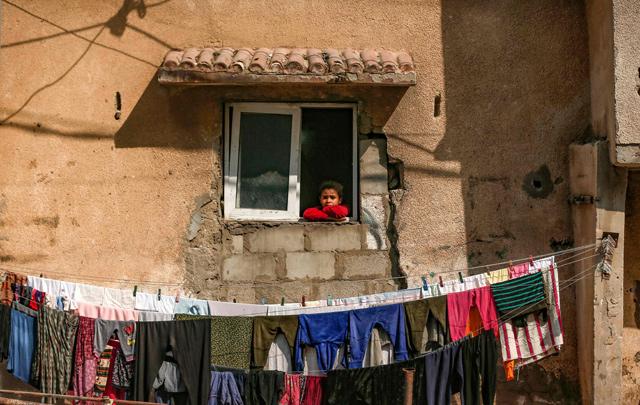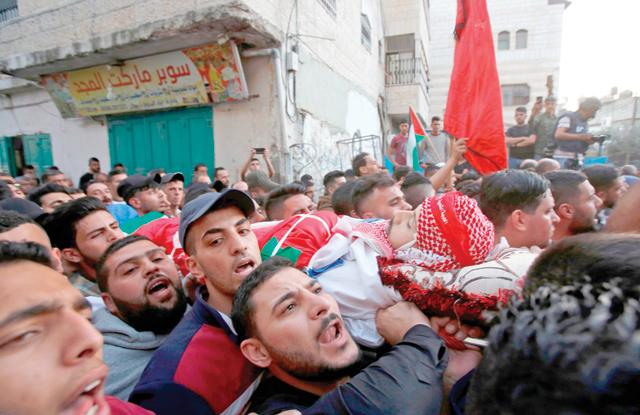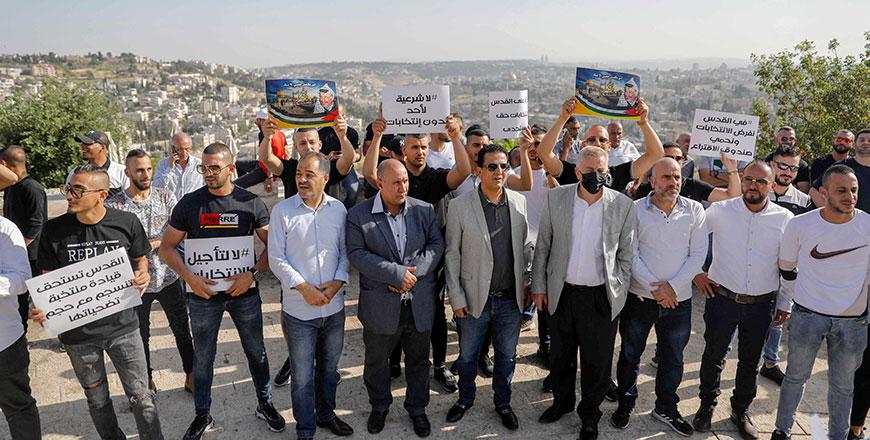You are here
Palestinian rivals Fateh, Hamas to discuss elections
By AFP - Feb 08,2021 - Last updated at Feb 08,2021

A young member of the Bakr family that lost four children (from extended family), killed during the 2014 Israeli aggression on Gaza, looks out the window of her home in Al Shati refugee camp in Gaza City on Sunday (AFP photo)
OCCUPIED JERUSALEM — The key Palestinian factions — Fateh, which controls the West Bank, and Gaza's Hamas Islamists — plan to meet in Cairo this week to tackle issues that could threaten long-awaited Palestinian elections.
Technical, legal and security issues must be resolved first, observers say, to ensure the first Palestinian votes in 15 years are not derailed by acrimony between the former enemies.
Palestinian President Mahmoud Abbas last month announced the dates for the first polls since 2006, setting a legislative vote for May 22 and a presidential election on July 31.
They come in a year when veteran Israeli Prime Minister Benjamin Netanyahu, a hardliner in the conflict, also faces new elections, months after the White House departure of his close US ally Donald Trump.
While Palestinians cut ties with Trump's administration, accusing it of egregious pro-Israel bias, they hope for renewed diplomacy under Joe Biden, who supports a two-state solution and has vowed to restore aid to them.
The last Palestinian parliamentary vote saw Hamas win an unexpected landslide, a victory not recognised by Abbas's Fateh, which ultimately led to bloody clashes and a damaging split in Palestinian governance.
Fateh has since held control of the Palestinian Authority in the occupied West Bank, and Hamas has been in power in Gaza since 2007, the year Israel imposed a devastating blockade on the Mediterranean enclave.
The divide has left the Palestinian Territories under two different political systems and without a functioning parliament.
By calling elections, experts say, Abbas is seeking to restore credibility in Palestinian governance amid hopes that Biden can revitalise negotiations with Israel aimed at the creation of the Palestinian state.
Policing the polls
However, before any vote, a string of nuts-and-bolts issues must be addressed, Khalil Shikaki, director of the Palestinian Centre for Policy and Survey Research in Ramallah, told AFP.
If there are election disputes, “which judiciary — the one in Gaza or the one in the West Bank — is going to adjudicate?” he asked.
He noted that PA’s judiciary does not recognise Hamas courts, while the Islamists might insist their judges be allowed to rule on Gaza poll disputes.
“Who is going to police the process?” he asked, warning of potential friction if Fateh insists on dispatching PA forces to Gaza.
“It is essential that they agree on these terms. If they don’t agree, most likely there won’t be elections.”
East Jerusalem
Even if the Fatah delegation led by Jibril Rajoub and Hamas’s team headed by Saleh Al Arouri make progress in Cairo, major challenges still loom over the vote.
Top of the list is East Jerusalem, the majority Palestinian part of the city annexed by Israel following the 1967 Six Day War in a move not recognised by most of the international community. Abbas has previously said he would not agree to elections unless Palestinians in east Jerusalem can vote.
But such a guarantee is unlikely from Israel’s government, which has labelled the entire city its “undivided capital”.
The PA has asked the European Union to send an election observer mission to, in particular, oversee the vote in East Jerusalem.
Related Articles
GAZA, Palestine — Palestinian President Mahmoud Abbas' decision to indefinitely postpone elections could rekindle tensions between his secul
HEBRON — Confrontations erupted between Palestinians and Israeli forces Monday during demonstrations marking the 15th anniversary of Yasser
RAMALLAH, Palestinian Territories — Palestinian leaders were set to decide on Thursday whether to hold elections next month as scheduled or

















